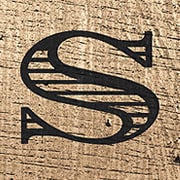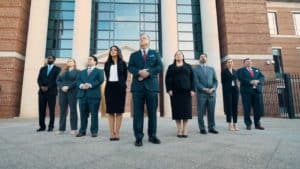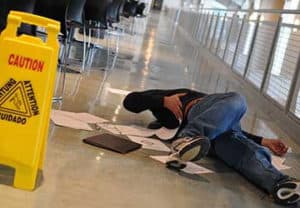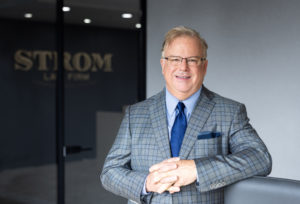South Carolina Slip and Fall Attorneys
When you enter another person’s property, the property owner, landlord, or business proprietor assumes the responsibility of keeping you reasonably safe. When wet floors, cluttered areas, poor lighting, missing railings, unmaintained entryways, or other safety hazards cause you to slip and fall on another’s property, you may hold these people or entities accountable for causing your harm and the economic losses you suffer. A South Carolina slip and fall lawyer can help determine who is at fault for your injury and whether you should pursue claims against any responsible parties.
When you file a slip and fall lawsuit, you, as the injured person, must prove that dangerous or hazardous conditions that could and should have been avoided caused your injury. To prove such allegations, collecting as much information as possible directly following the incident is important. Here are some questions to ask witnesses, property owners, and yourself after a slip-and-fall accident:
- What conditions caused or contributed to the cause of my fall?
- How long was this dangerous condition there?
- Who owns, manages, or oversees this property?
- Was the property owner or manager aware of the hazardous condition? Or should they have been?
- Were the hazards or risks identified?
- Were there sufficient warnings placed to bring attention to the hazardous condition?
- Where were you looking when you fell?
In order to win and be paid on your slip and fall claim, you must demonstrate that those responsible for the upkeep and maintenance of the property failed to use reasonable care to keep the property in a reasonably safe condition.
Accidental falls are some of the most common accidents causing serious injuries. Businesses and homeowners have certain duties to keep their property safe for visitors, and accidents happen when they fail to live up to that duty. It is important to speak with an attorney following a slip and fall because, at the time of the accident, you may not realize the fall was somebody else’s fault. We can investigate the matter further to determine the facts. Whether you’ve slipped on a wet floor at a grocery store, tripped over a raised sidewalk, or suffered from a slip and fall in any other ways, contact the slip and fall attorneys at Strom Law Firm immediately.
Table of Contents
- What To Do After a Slip and Fall Accident
- Is Your Injury Serious Enough For a Slip and Fall Case?
- What can be proven in a Slip and Fall Case?
- What Evidence is Needed for a Slip and Fall Case?
- Types of Injuries Often Suffered in Slip and Fall Accidents?
- Contact a South Carolina Slip and Fall Attorney Today
How common are slip and fall accidents in South Carolina?
Anyone of any age can suffer a slip and fall. However, they are very common in older
adults. The CDC reports that one in four adults over the age of 65 will suffer a fall, but only half of them will be reported. Every year, more than 3 million senior citizens are
treated for falls in emergency rooms across the United States. Additionally, 95% of hip fractures are caused by slips and falls.
The National Safety Council says these accidents are the number one danger for senior citizens. At the same time, the National Floor Safety Institute (NFSI) reports that they are one of the top causes of injury-related fatalities for those over the age of 65 and are the leading cause for those over 85. They are also a leading cause of unintentional injuries.
Here are a few more statistics from the NSFI about slip and fall accidents:
- More women experience slip and fall accidents than men.
- However, more men die from slip and fall accidents than women.
- Fractures are the most common injury in a slip-and-fall accident, with about 5% of all people who slip and fall breaking a bone.
- Slip and fall accidents are the most reported kind of workers’ compensation claim, especially for those aged 55 years or older. They are also responsible for the most missed days on the job.
- Slip and fall accidents are responsible for almost 90% of fractures suffered by people over the age of 65 and are one of the leading causes of spinal cord injuries and brain traumas.
- Slip and fall accidents are responsible for 40% of all admissions to nursing homes.
What are the typical Causes of South Carolina Slip and Fall Accidents?
Slip and fall accidents occur due to a variety of factors. Some of these factors may suggest negligence of another, including:
- Broken or raised pavement
- Failure to properly light a space
- Worn down and torn carpet
- Wiring, ropes or hoses
- Cluttered areas
- Debris on the ground
- Spills on the ground
- Faulty stairs
- Absence of handrails
- Hidden or unclearly marked steps
- Failure to salt or remove ice or snow
- Uneven or wet floors
What should I do after I have suffered a slip and fall accident in South Carolina?

The longer you wait to see a doctor after your fall, the less likely you are to make a fast, full recovery from your injuries. The following are some red flags that you should seek medical attention as soon as possible, whether you hit your head in a falling accident or sustain a potential injury to another body part:
- Severe or lingering pain
- Headaches
- Obvious swelling
- Ringing in the ears
- Bruising
- Loss of balance
- Dizziness
- Back pain
- Stomach pain
Please seek emergency or urgent care if you need it, and do not delay. If you do not need emergency medical care and you have a primary care physician that you see regularly, schedule an appointment so he or she can determine whether medical treatment is required. Your doctor can refer you to a specialist for further treatment if necessary.
You should also immediately contact a South Carolina slip and fall attorney to seek representation. This should occur before you speak with the owner or manager of the premises, complete an accident statement, or provide a statement to any insurance adjuster representing the owner or occupier of the property.
If you have suffered a slip and fall or other premises liability accident, you should also avoid making statements regarding your accident on social media, as they may be considered in your case.
What duties does a property owner have to keep me from suffering from a slip and fall injury?
In South Carolina, property owners are expected to maintain the premises and keep the grounds safe for certain visitors. They are required by law to fix any vulnerabilities on their property and, at the very least, adequately warn their guests of any risks. A South Carolina landowner can be considered negligent when they knew or should have known of a hazard and either failed to repair it or failed to provide a warning about a known hazard. Liability for injuries in South Carolina applies to residential property and those who control commercial premises, vacant lots, and other properties.
It is important to immediately determine who had control over the property at the time of the incident. We must then determine whether the party managing the property was negligent in their action or failed to act in a reasonable manner in light of a foreseeable danger.
Evidence loses value over time. It is essential that we meet with potential witnesses as soon as possible while their memories remain fresh. We prefer to investigate the condition of the premises immediately (or as soon as possible) following an incident before anyone has a chance to perform work to change the condition of the area where the accident occurred on the property or land in question.
Is my injury serious enough for a South Carolina slip-and-fall case?

recover compensation for your expenses and troubles.
If you or a loved one has been injured in a premises liability case, you may be able to recover compensation for the following:
- Medical Bills: Any medical bills incurred as a result of their injury, such as doctor visits, surgeries, physical therapy, medication, and future medical care, may be recoverable.
- Lost Wages: You may be able to be compensated for lost wages due to missed work because of the injury, as well as compensation for decreased future earning ability.
- Pain and Suffering: You may be entitled to compensation for any lasting physical or emotional pain suffered as a result of your injury.
- Wrongful Death: When another’s negligence results in death, the family of the victim may be able to file a wrongful death lawsuit. Families of deceased victims may be able to collect compensation for any financial damage, such as loss of income, resulting from their loved one’s death. Families may also be able to seek compensation for pain and suffering.
Slip and falls can be challenging cases to prove, but you should not let that keep you from pursuing compensation when necessary. At Strom Law Firm, we always offer a free initial consultation where we can discuss the above factors and decide on the best path forward.
What is the Premises Liability Analysis in Slip and Fall Cases?
Under South Carolina law, a landowner’s duty to those on his or her property depends on the person’s status:
Licensees: Licensees are allowed entry to a property by the consent of an owner or occupant. The duty of care owed to a licensee is not quite as strict as that to an invitee. Owners and occupants have a duty to warn licensees of conditions that the owner or occupant knows.
Invitees: Invitees enter another individual’s land at the express or implied invitation of the occupant of the land and for the owner’s benefit or for a public purpose. An
occupant or land-owner owes a duty of reasonable care to an invitee, which carries the duty to warn of any “latent” or hidden defects or dangers. The owner must have actual or constructive notice of the defect to give rise to this duty. Constructive notice means the occupant or owner has reason to believe the condition exists, which would be discovered with reasonable inspection.
Trespassers: Trespassers enter land belonging to another without any invitation, right, or lawful authority. They enter exclusively for their purposes. Trespassers are merely owed by the owner or occupant a duty not to be harmed by willful or wanton conduct or conditions.
A person’s status on property is usually dependent on the
specific facts and circumstances of their case.
What must I prove in a South Carolina Slip and Fall case?

However, property owners need to be careful when keeping up their property. While there is no precise way to determine when someone else is legally responsible for something you slip or trip, cases typically turn on whether the property owner acted with reasonable care so that slipping or tripping was not likely to happen. It must also be considered whether you were careless in not seeing or avoiding the thing you fell on. Here are some general rules to help you decide whether someone else was at fault for your slip or trip and fall injury.
To be legally responsible for the injuries you suffered from slipping or tripping and falling on someone else’s property, one of the following must be true:
- The premises owner or an employee must have caused the spill, worn or torn spot, or other slippery or dangerous surface or item to be underfoot.
- The owner of the premises or an employee must have known of the dangerous condition but did nothing about it after a reasonable opportunity to correct it.
- The premises owner or an employee should have known of the dangerous condition because a reasonable person taking care of the property would have discovered it and either removed or repaired it.
The third situation is the most common, but it is obviously less clear-cut than the first two because of the words “should have known.” Liability in these cases is often decided by common sense. Judges and juries determine whether the owner or occupier of property was careful by deciding whether the steps the owner or occupier took to keep the property safe were reasonable.
What does it mean for a property owner or occupier to have been reasonable?
Any negligence claim often hinges on whether the defendant acted reasonably. In determining a property owner’s “reasonableness,” the law concentrates on whether the owner makes regular and thorough efforts to keep the property safe and clean. Here are some initial questions you can ask to determine whether a property or business owner may be liable for your slip or trip and fall injuries:
- If you tripped over a torn, broken, or bulging area of carpet, floor, or ground or slipped on a wet or loose area, had the dangerous spot been there long enough for the owner to have known about it?
- Does the property owner have a regular procedure for examining, cleaning, or repairing the premises? If so, what proof does the owner have of this regular maintenance?
- If you tripped over or slipped on an object someone had placed or left on the floor or ground, was there a legitimate reason for the object to be there?
- If there once had been a good reason for the object to be there, but that reason no longer exists, could the object have been removed, covered, or otherwise made safe?
- Was there a safer place the object could have been located, or could it have been placed in a safer manner without much greater inconvenience or expense to the property owner or operator?
- Could a simple barrier have been created or a warning been given to prevent people from slipping or tripping?
- Did poor or broken lighting contribute to the accident?
If the answers to one or more of these questions come out in your favor, you may have a good compensation claim. However, it would be best if you still considered whether your own carelessness contributed significantly to your accident.
How does my carelessness affect my South Carolina slip and fall accident?
In almost every slip and fall case, whether your carelessness or inattentiveness may have contributed to the accident will be determined. The rules of “comparative negligence” in South Carolina help measure your reasonableness in going where you did, in the way you did, just before the accident happened. You should ask yourself some questions about your own conduct because those defending the property owner or occupier will certainly be asking them if you file a claim.
- Did you have a legitimate reason, one which the owner should have anticipated, for being where the dangerous condition was?
- Would a reasonably careful person have noticed and avoided the dangerous area, or walked more carefully to avoid slipping or tripping?
- Were there any obvious warnings that the area might be dangerous?
- Were you doing anything that distracted you from paying attention to where you were going? Were you running? Were you on your cellphone, or were you otherwise distracted in a way that made your fall more likely? Have you consumed alcohol? Were you on any prescription drugs that may affect your balance or your ability to concentrate?
You don’t have to prove that you were careful, but what you did at the time is essential to analyze your case and how your alleged fault may come into play.
How could security footage affect my claim?
Nowadays, most public places we visit, like businesses, offices, and other high-traffic areas, have surveillance systems of some sort for security. Even many single-family residential premises now have video surveillance. If you suffer a slip and fall accident on someone else’s property, you can be sure that both your attorney and the attorneys for the other side will want to review the footage to determine if there is evidence of how the fall occurred. What you were doing at the time leading up to, during, and after the fall can come into play and affect your case. Were you being careless? Were you distracted? Did you hop right up and look fine for the rest of your time on the premises? None of these things would necessarily preclude your case, but they could have an effect on your recovery, if any.
What other evidence may be used in my South Carolina slip and fall accident case?
The evidence in a slip and fall case varies depending on the type of slip and fall that occurred. Some of the important pieces of evidence you should always try and collect in addition to the surveillance footage discussed above are:
- Your clothing and shoes
- Photos of your injuries
- Medical history and records
- Photos of the scene and object or dangerous condition that caused your accident
- Witness information and statements
- An accident report
Gathering all of these items helps your personal injury attorney organize a strong case and get you the financial settlement that you deserve.
What kinds of injuries are often suffered in South Carolina Slip and Fall Accidents?
Head Injury – Often, during a slip and fall, a victim’s head will strike the floor with the full momentum of the fall. Traumatic brain injury is yet another injury from a slip and fall that can alter a person’s life forever. When somebody falls backward, their momentum often causes their heels to swing over their head, leading to their head hitting the ground hard, with the full force of gravity.
Broken Hips and Dislocations– Broken hips and hip dislocations are other common injuries
resulting from slip and falls. Hip injuries can be completely debilitating for those suffering from one. The CDC estimates that about 95% of hip injuries are caused by falls.
Back Injuries and Spinal Cord Damage – Slip and fall accidents can sometimes result in herniated discs, broken backs, and spinal cord damage. Anybody who has suffered a back injury knows it can affect every aspect of your life. The back and spine are central to the entire body, and an injury renders many activities impossible for an injured party. Aside from the effect a back injury has on your ability to perform certain actions, back injuries are incredibly painful and sometimes permanent. If your injury
requires back surgery, you will have a long and expensive road to recovery.
Shoulder Injuries – Shoulder damage is a common result of a slip and fall, given the way people naturally try to land on their side in a fall. Anybody who has suffered a shoulder injury knows that it can be painful, debilitating, and downright inconvenient. Many of those who suffer shoulder injuries never fully heal, resulting in chronic pain and disability. For significant shoulder injuries, surgery followed by a long course of physical
therapy may be required. These procedures and follow-ups are time-consuming and
expensive.
Fractures, Sprains, and Strains – While fractures and sprains are not thought of as the most severe injuries, they can be painful and lead to short-term and long-term complications. Often, fractures or sprains can result in chronic pain, infection, and other issues in a slip and victim.

If you have had to pay the physical and financial costs of any of the above injuries or other slip and fall injuries, an attorney can help you seek your compensation.
Contact a South Carolina Slip and Fall Attorney Today
If you have suffered a slip and fall injury, it is important to be compensated by the responsible party. Injuries from slip and falls should be taken seriously, and those that cause them should meet their obligations to keep their property safe. Strom Law Firm is experienced in representing South Carolina slip and falls victims and other accidents. A South Carolina slip and fall lawyer is ready to meet with you at your convenience. You can also contact us online or by phone at 803-252-4800 to schedule a time to talk with a member of our team.


















